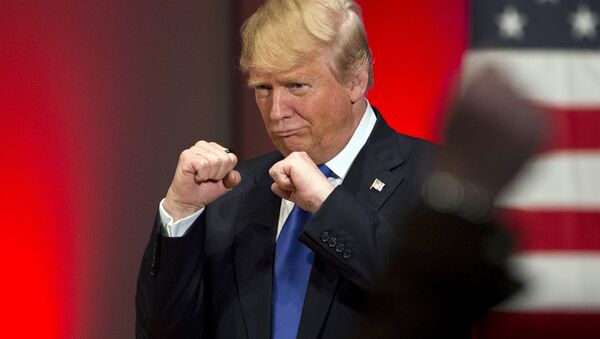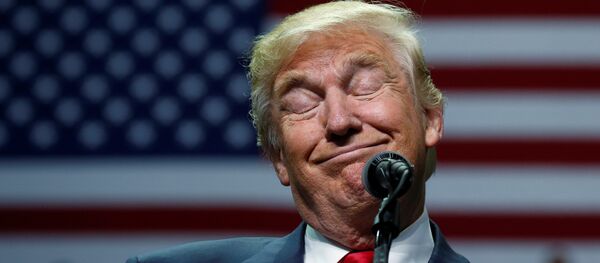"What we've seen so far is that he is going to move pretty fast and he is going to move pretty fearlessly. He seems to have support of the nation to do that. I wouldn't be surprised if that support increases and he is able to get much of his agenda accomplished."
In a video published on Monday Trump mentioned the controversial TPP, one of President Barack Obama's signature trade initiatives, energy restrictions, regulations, national security, immigration and lobbying bans.
The TPP "was considered a done deal, but it wasn't yet completed," the historian said. Trump is "going to stop the train from moving in that direction, which is something he can do. He can't repeal and replace Obamacare until Congress returns. He can't build the wall until Congress returns. But these actions he is taking are things that he can do even without the US Congress."
Wead further explained that Trump advocates signing bilateral trade deals with countries that wanted to sign the TPP since he thinks that all parties involved will benefit from this arrangement because "there will be less money spent on bureaucracy."
President-elect Trump shares an update on Transition & policy plans for the first 100 days. Watch here: https://t.co/eq1uyU878s.
— Transition 2017 (@transition2017) 21 ноября 2016 г.
Interestingly, Trump did not talk about the wall with Mexico, one of his most headline-making proposals. Although it might not be the "impenetrable, physical, tall, powerful, beautiful, southern border wall" which the US president-elect has promised, this initiative is still likely to be implemented.

"I think we've heard his discussion on this evolve where he said that there are some places where geographically and topographically it's not necessary to build a wall. There are places where it could be a fence. So it's not literally like the Great Wall of China, but in some places a wall. I think he will do that. This is why the Obama administration is trying to open up those corridors and let as many people flood in illegally until Congress comes back and Obama can take action," he said.
Trump has adopted tough immigration rhetoric during the election campaign, pledging to deport millions of undocumented migrants. However, some local governments in the so-called sanctuary cities have said that they will not enforce new regulations.
Wead, who was a special assistant to the president in the Bush Senior White House, commented that it was hard to predict what Trump will do on this issue.
Earlier, the US president-elect vowed to "end" the cities which adhere to a policy of protecting undocumented immigrants by not prosecuting them solely for violating federal immigration laws. Sanctuary cities include New York, Seattle, Chicago, Los Angeles and Philadelphia among others.
Wead also cautioned that Trump will not be able to enact his policies in an instant.
"Bureaucracies often have life and personality of their own and bureaucracies in the US tend to be very pro-government, liberal and leftist," he explained. "The result is that Donald Trump's bureaucracy will move slowly. There will be changes. People who agree with him in that bureaucracy will be empowered. There will be some who will be fired and new people who will be hired, but it's not going to be something that happens overnight."



